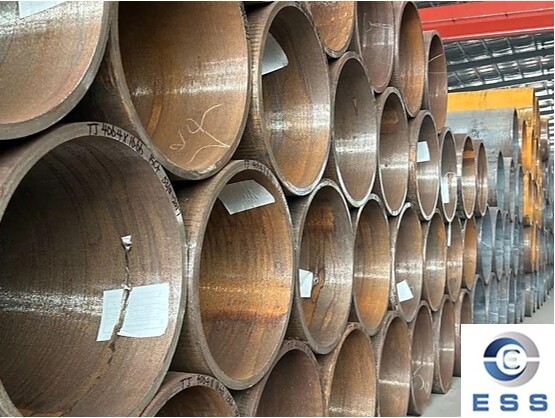
In daily operation, we often need to judge
whether equipment or components are still suitable for continued use. The
scrapping standard is used to determine the basis for this judgment: when the
performance, structure or safety index of a certain equipment or component
drops to the point where it is no longer suitable for safe operation or
economic benefits, it should be eliminated, replaced or decommissioned in a
timely manner. Simply put, the scrapping standard provides a set of
quantitative or qualitative judgment bases to prevent safety hazards caused by
aging, wear or damage of equipment.
Boiler
tube refers to steel materials with openings at both ends and hollow
sections, and their length is relatively large compared to the surrounding
area. According to the production method, they can be divided into seamless
steel pipe and welded
steel pipe. As an important part of industrial boilers, the safety and
service life of boiler tubes are directly related to the normal operation of
boilers. So, what is the scrapping standard for boiler tubes? What factors will
affect the life of boiler tubes?
The scrapping standard for boiler tubes is
usually that the wall thickness wear exceeds 15% of the tube thickness or the
strength residual rate is less than 5%. The life of boiler tubes is affected by
many factors such as material, welding, manufacturing process, use environment
and operating status. The following will introduce you in detail.
Boiler tube scrapping standard
The scrapping standard of boiler tubes is
not fixed, but is usually mainly judged based on the degree of wear of the tube
wall thickness and the residual rate of strength. Generally speaking, if the
wall thickness of the boiler tube is worn more than 15% of the tube thickness,
or its residual rate of strength is less than 5%, then the boiler tube needs to
be scrapped and replaced.
1. Wall thickness wear exceeds 15%
When the original tube wall thickness wears
more than 15% due to long-term high temperature, high pressure, corrosion and
other working conditions, the pipeline safety performance is significantly
reduced.
2. Strength residual rate is less than 5%
If the residual bearing capacity (residual
strength) of the pipeline drops to less than 5% of the original design value
after long-term operation, it is difficult to meet the safe operation
requirements.
The formulation of these two standards is
based on the principles of thermodynamics and material mechanics. The purpose
is to ensure that during the operation of the boiler, the pipeline can
withstand high temperature and high pressure working conditions and avoid
safety accidents such as bursting caused by excessive local wear or material
fatigue.
Factors affecting the life of boiler
tubes
1. Material
The material of the boiler tube is the
basis for determining its service life. Different materials have different
corrosion resistance and high temperature resistance. For example, high-quality
high-temperature boiler tube materials such as 20G, 12CrMoVG, etc., often have
a service life of more than 10 years.
2. Welding quality
The welding quality of boiler tubes has a
direct impact on their integrity and safety. Poor welding may cause cracks, air
leaks and other problems in the pipeline, which in turn affects the service
life.
3. Manufacturing process
The manufacturing process that meets
national standards can ensure the quality of boiler tubes. From pipe
procurement to processing and forming, every link may affect the performance
and service life of the final product. Especially for some high-precision
occasions, such as the manufacture of precision
tube, slight differences in the process may lead to huge changes in product
performance.
4. Use environment
Boiler tubes work in harsh environments
such as high temperature, high pressure, and corrosion. These environmental
factors will accelerate the wear and aging of the pipeline, thereby shortening
its service life.
5. Operating status
Reasonable operating parameters such as
temperature, pressure and water quality control are crucial to extending the
service life of boiler tubes. Improper operating conditions may cause premature
damage to the pipeline.
Summary
In summary, in order to ensure the safety
of boiler tubes and extend their service life, we should start from selecting
high-quality materials, improving welding and manufacturing process levels,
improving the use environment, and optimizing the operating status. At the same
time, regular inspection and maintenance are also essential measures.













 Eastern Steel Manufacturing Co.,Ltd not only improve product production and sales services, but also provide additional value-added services. As long as you need, we can complete your specific needs together.
Eastern Steel Manufacturing Co.,Ltd not only improve product production and sales services, but also provide additional value-added services. As long as you need, we can complete your specific needs together.










